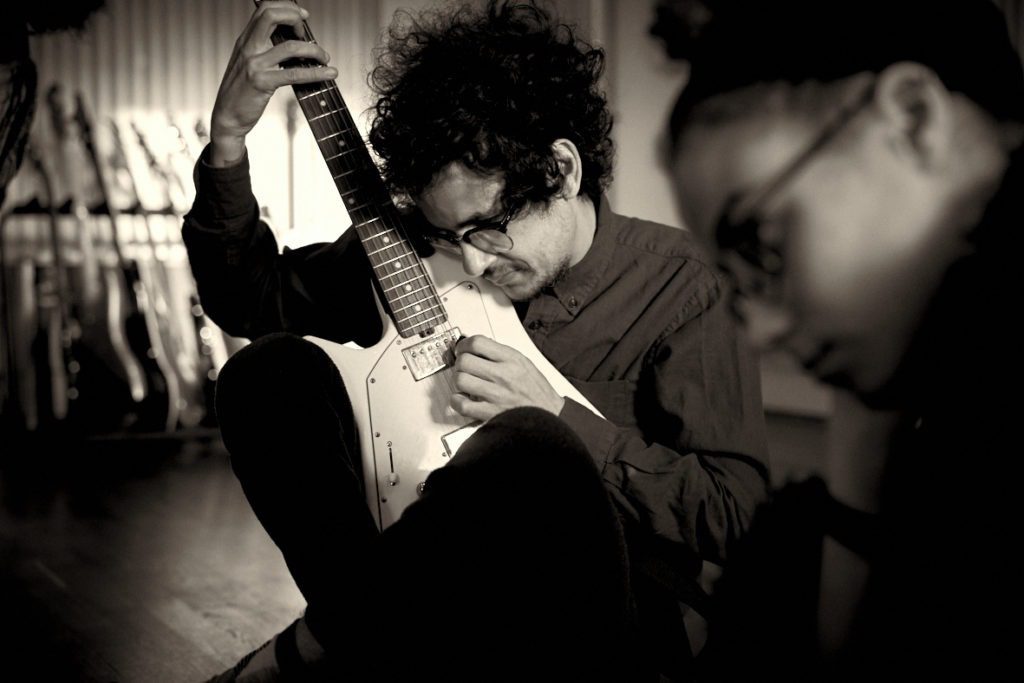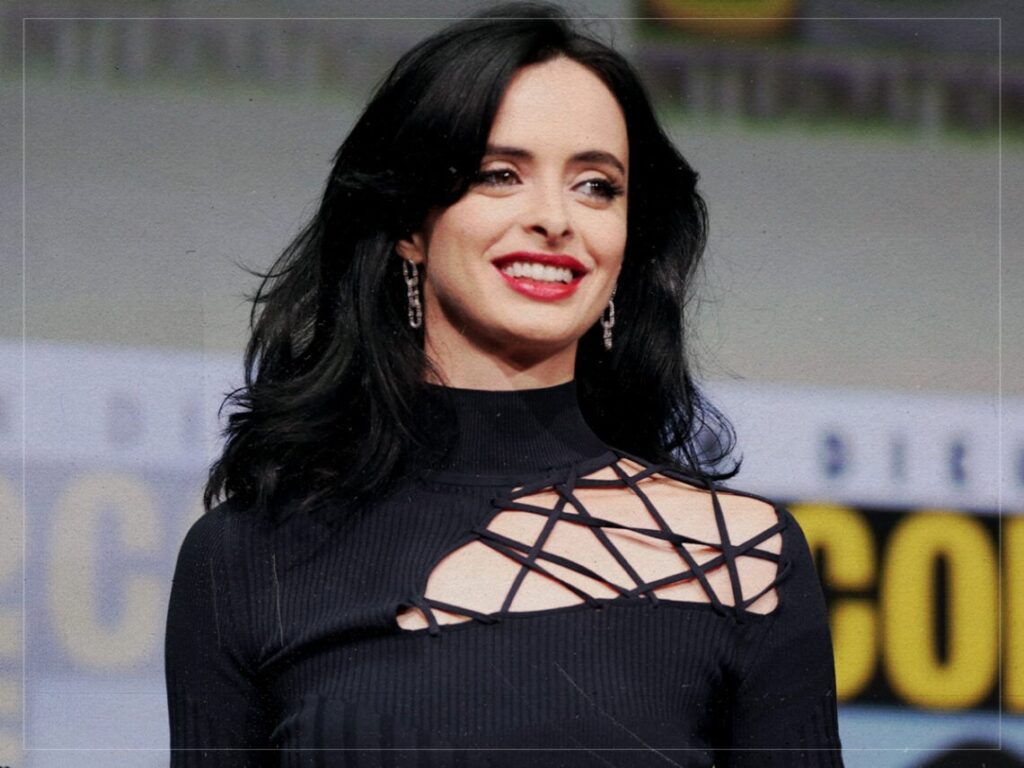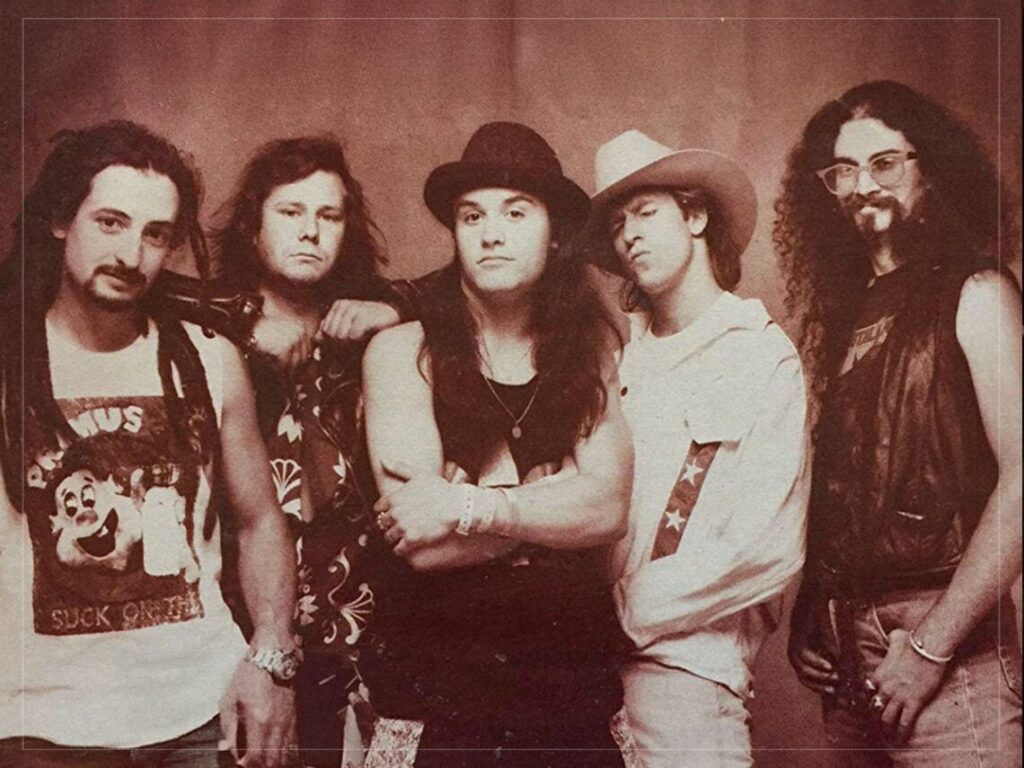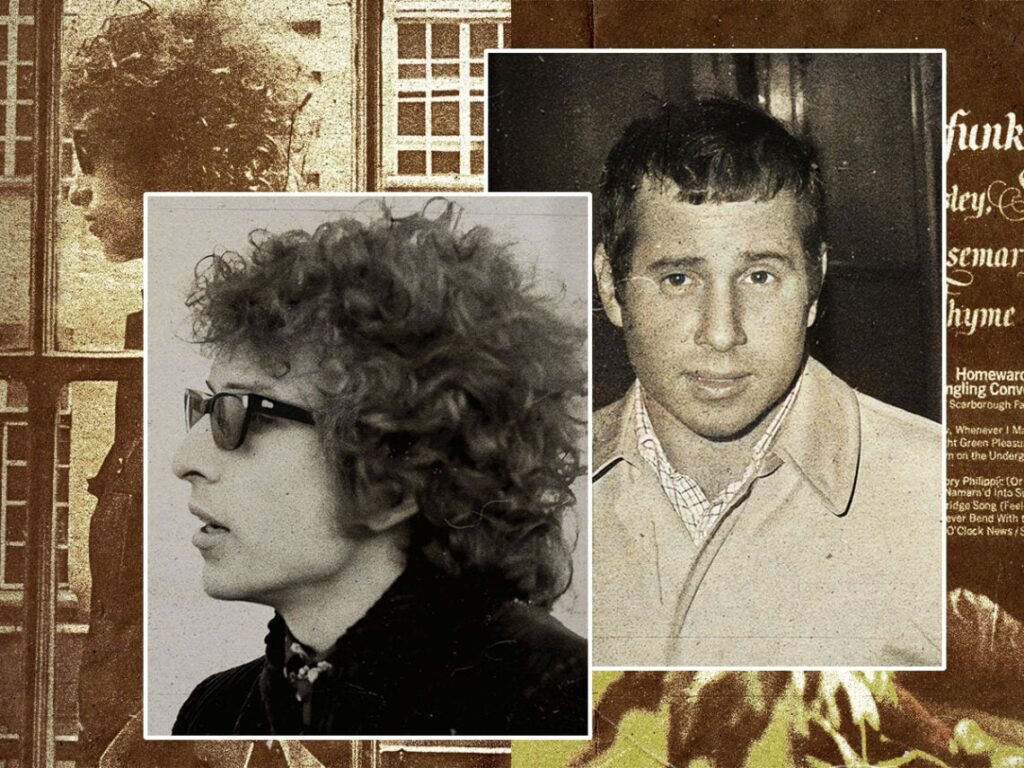Omar Rodríguez-López on Band Dynamics, Solo Albums, & Erykah Badu
 Posted On
Posted On
Over the past 25 years, Omar Rodríguez-López has been one of the most visionary and diverse musicians, producers, and artists on the planet. Fusing the post-hardcore and punk sounds that originally brought him to fame with At the Drive-In alongside the psychedelic, electronic, ambient and Latin influences that have contributed to his solo work and other projects (the Mars Volta, Bosnian Rainbows, Antemasque, a tangential yet integral role in Le Butcherettes, and much more), Rodríguez-López hasn’t just developed a style that’s all his own, but an evolving catalog of sounds that are distinctly his.
Part of what makes Rodríguez-López so unique — whether he’s performing, producing, or directing films — is his complete lack of formal training in music. While others may be concerned about music theory and proper structuring, the 44-year-old’s primary focus is simply on capturing the raw emotion that comes through in both his audio and visual work.
The freedom and lack of musical boundaries within Rodríguez-López’s sound has never shone brighter than it does on his newly released triple-LP compilation, The Clouds Hill Tapes Parts I, II, & III. Featuring unique versions of 20 tracks spanning 10 records and all recorded in 2011 and 2012, the collection provides new twists on old favorites as well as an unparalleled look into the creative process for some of the guitarist’s most iconic solo work.
Not only did we catch up with the man himself to chat about the new music, and working with his heroes, but we’ve also got the brand new music video for “Winter’s Gone” as well as an exclusive stream of the entirety of Part III.
SPIN: For people who haven’t listened to it yet, what should people expect from The Clouds Hill Tapes?
Omar Rodríguez-López: In some cases, it’s a reimagining of the old material, and in other cases, it’s a straight-up live version of it. Pero, it was just nice to do because it all centered around playing the Clouds Hill Festival, which was a cool thing to do for me. We put the setlist together and only had two days to rehearse, and then we played the festival, took a day off, and recorded them one after another for five days. I do well with that kind of immediate environment, so my memory of it is just one of really enjoying the whole thing immensely.
After putting out so many records both with bands and under your own name, what’s the difference for you between the two?
I wish I had an intelligent answer for this, but in the end, I feel like I’m just trying to do the best job that I can. I’m trying to best serve whatever the project is — which might sound funny because this one is under my own name, but I still have the responsibility of everyone I’m working with and the people who are involved. I think I work my best when I’m serving another purpose other than myself. For composition, it’s just you in a room with the creative spirit. But when working on a record, it’s nice to have other people involved.
How have you seen yourself grow from solely a musician to really becoming an acclaimed producer over the years?
I’ve been lucky to have never considered myself a musician and not to have grown up in that sort of technical environment. That’s not some sort of false modesty — I genuinely mean I don’t have much background in that and my strong point is in taking creativity and processing it. That’s kind of what producing is anyway — it’s working with people and organizing things. I’m the guy in the group of friends who organizes the camping trips. I’m that annoying guy who’s like ‘OK, we’ll set up by this time and be ready to go by this time…’ so I think those sort of life skills have always come into play for me just like they do when you’re part of a band. Having those life skills is one way you can be a good band member. For the people who don’t have those life skills, well, we know how that turns out.
Considering the impact your work has left on so many younger bands, what’s it like to work with an artist who has been so inspired by you?
Once we get to work, it doesn’t really come into play because we’re just in the moment working on the project. Once the project is done and it no longer exists, I’m always grateful that in whatever way or reason, I’ve been able to somehow form part of someone’s life who didn’t even know me. It’s a strange concept in and of itself. I know the effect I have on my real-life immediate relationships, but to bring such an abstract concept into focus with someone from somewhere else in a different generation, it’s pretty humbling.
On the flip side of that, what’s it like to work with people who you’ve looked up to in that regard?
It’s so beautiful and so great. Those moments are very surreal and almost dream-like, so I have to stay very focused and in the moment or else I will forget the details about it. One of my favorite things is seeing how much in common I have with people I really look up to and seeing their workflow in how they do things. My best example is when I worked with Erykah Badu, because I listened to her records so much when doing At the Drive-In stuff. That night, I think I played in Philly or something, and I got off stage and was driven to New York where she was at the time. By the time I got there, it was after 1:00 am, and she had energy like it was 12 in the afternoon. A lot of our workflow seemed similar and our approach to art and music seemed similar. We didn’t even talk so much about music as we did about art and life in general. When I have moments like that, they’re so important to me.
How different is it to work with your family and lifelong friends as opposed to other musicians who you may just do a single project with?
There’s a lot less insecurity is the main thing. When you meet new people, you have to go through a series of social marks of getting to know each other and everything, whereas with my friends and family, that’s obviously not the case. They know what I mean by something and my sense of humor. We have like a shorthand language because of our personal relationships, so it’s much quicker and much less feeling each other out than when you don’t know someone and you get together to talk about the project and go through the process.
Given your work in both mediums, in what ways would you say film and music are connected for you?
As someone who isn’t really a musician, music has always been sort of a cultural thing for me. In Puerto Rican culture, music itself just has an energy and a presence in everything you do, so it’s not just something you ever think about consciously — just like you don’t think about eating fried bananas or something. My first passion was always movies, as I grew up watching a lot of movies with my mother. She always loved mystery-thrillers like the old Perry Mason, so I was always really into that. Once my dad was to buy a video camera, that was what I wanted to do. Growing up, I always thought about turning my music into images, and then all of a sudden I got a career in music and started having to turn the images in my head into music.
Having worked in so many different genres and styles of music, is your creative process different for each one or are they all more or less the same?
I’m kind of a pack rat, so I end up collecting a lot of different things. Every year we have to go through and organize it, and we get this big dumpster in front of the house to give away stuff and throw away stuff. This is kind of the same thing, where all this stuff just kind of comes out and I just have to organize it into different groups or piles. A lot of the time, the nature of the music itself takes the lead and says ‘Oh hey, I belong in this group.’ At this point, it’s just kind of second nature, whereas early on in my career I had to give it more thought.


